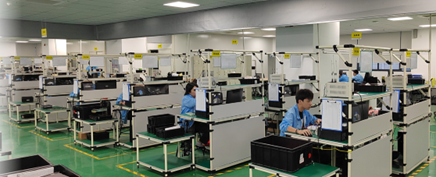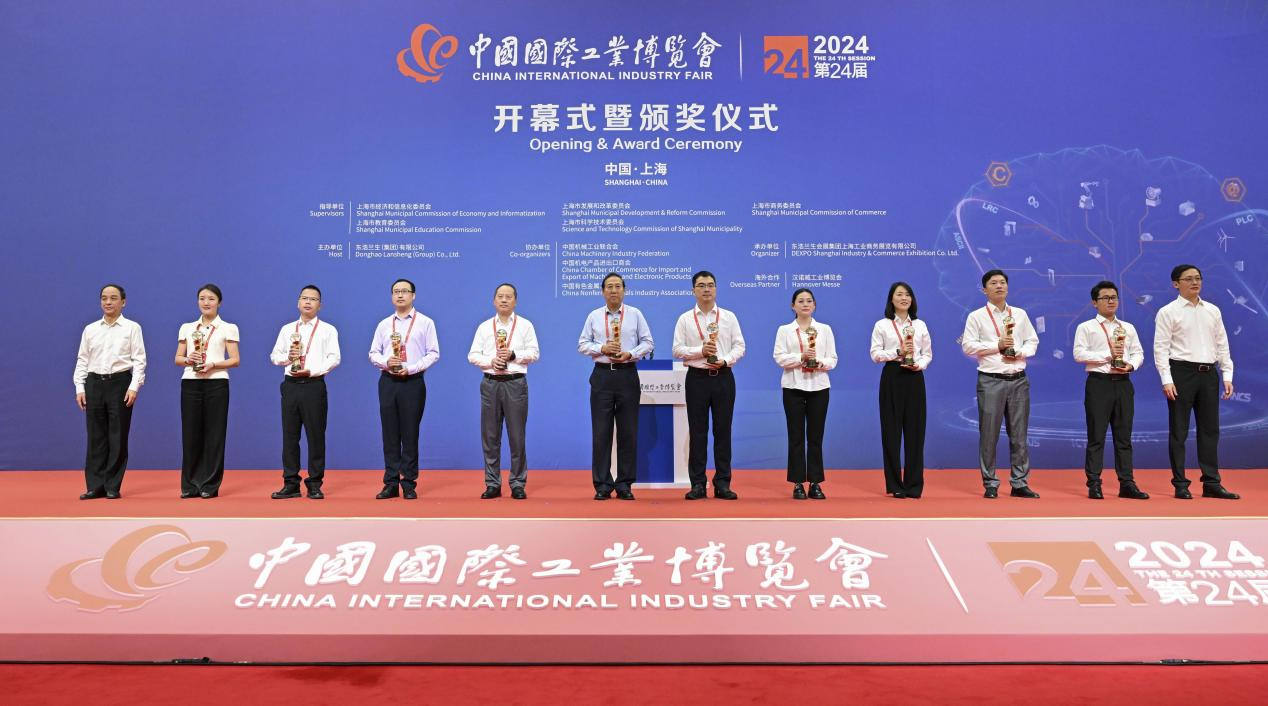Recently, the digital transformation project of the fully-owned production factory of Fujian Four-Faith Digital Technology Group Co., Ltd. (hereinafter referred to as "Four-Faith") was successfully completed and accepted. The project passed the final evaluation by the expert review panel from the Xiamen Industry and Information Technology Bureau, which highly praised the achievements and outcomes of the project.
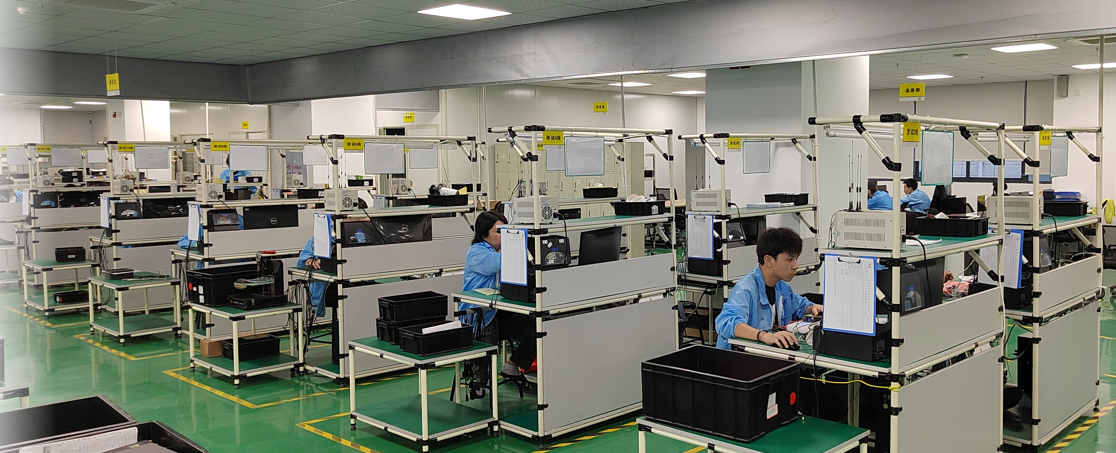
The expert review panel noted that Four-Faith's digital transformation project for its fully-owned production factory achieved its intended goals and demonstrated innovative applications in intelligent manufacturing at a level that aligns with international industry standards. The project has the potential to be replicated and promoted across other manufacturing enterprises.
Replicability and Promotion: Breathing New Life into Traditional Enterprises
On the day of acceptance, the expert review team evaluated various aspects of the project, including platform construction, functionality, technical requirements, risk management, investment, and cost control. They conducted on-site demonstrations of Four-Faith's intelligent operations management, warehouse management, and production execution systems, while also engaging in detailed discussions with the Four-Faith team.
During the presentation, Four-Faith's team shared insights on the project’s background, implementation path, overall framework, construction of practical scenarios, and demonstration of results. They illustrated how Four-Faith's traditional factory was transformed with "intelligent wings," accelerating innovation and digital transformation to achieve high-quality productivity.
Four-Faith’s production factory has implemented an integrated information management system based on ERP, CRM, WMS, and MES. This system enhances supply chain responsiveness, reduces inventory costs, and improves customer satisfaction by enabling real-time data sharing and intelligent decision-making. It streamlines internal business processes, breaks down data silos, and supports the creation of valuable supply chain services, transforming industrial technologies, experiences, and knowledge into standardized, software-based, and value-generating digital assets.
After thorough discussions, the expert panel concluded that Four-Faith’s digital transformation project not only meets the requirements of traditional manufacturing digitalization but also aligns with the latest technological trends in the industry. It provides a replicable and promotable digital transformation template for other enterprises, acting as a benchmark for the industry.
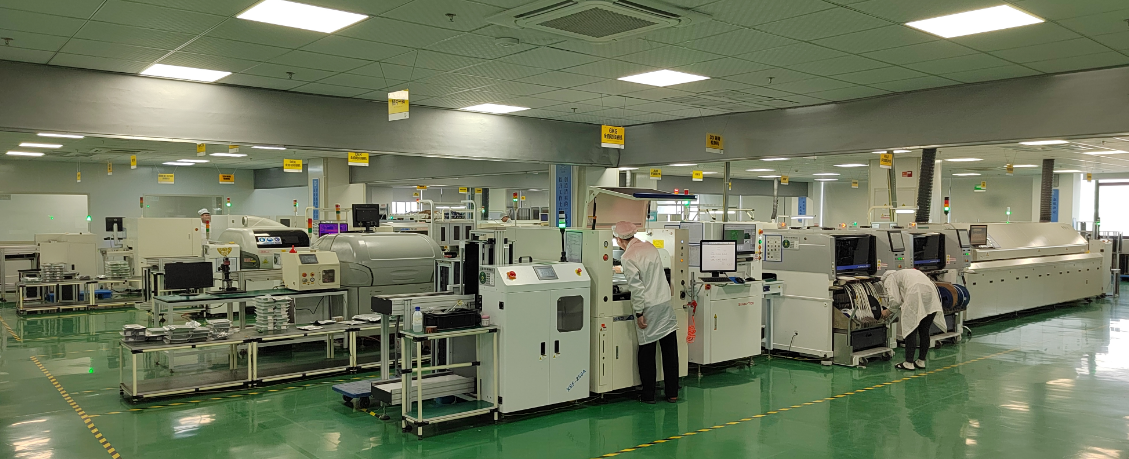
Smart Upgrades: The Path to Transformation
Traditional networks face challenges such as high latency and low transmission rates when handling large volumes of data. Without effective data processing and analysis tools, manual data handling becomes time-consuming and error-prone, potentially leading to production safety risks. Additionally, many systems and devices in production environments generate data in diverse formats without standardized measures or centralized aggregation, complicating decision-making for managers.
To address these challenges, Four-Faith, in collaboration with China Unicom's (Fujian) Industrial Internet Co., Ltd., launched a three-month digital upgrade project. The project tackled issues such as outdated equipment, low efficiency, and high energy consumption, offering comprehensive upgrades across five key areas: automation, equipment protection, capacity enhancement, energy management, and data integration. The upgrades significantly improved production efficiency, reduced waste and costs, and achieved intelligent management of the entire operational process.
A new digital factory platform was developed to manage and monitor manufacturing processes, including planning, execution, BOM management, equipment maintenance, quality inspection, and barcode management. The platform connects data across business and management levels, enabling real-time monitoring, data-driven analysis, and informed decision-making, enhancing overall operational quality and efficiency.
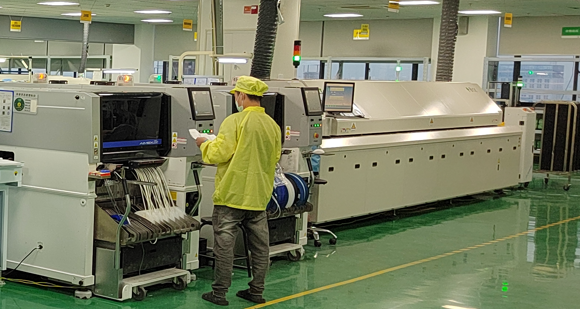
AI Empowerment: Unveiling Four-Faith's Digital Productivity
Walking into Four-Faith’s production workshop, "5G signal coverage" signs can be seen everywhere, showcasing the successful deployment of 5G RedCap networks. This solidifies Four-Faith’s foundation as a fully connected 5G smart factory.
By combining AI with 5G RedCap, Four-Faith achieves significant breakthroughs. The integration of AI-powered intelligent gateways optimizes production workflows. With built-in algorithms, these devices can conduct facial recognition, behavior analysis, and safety monitoring to enhance efficiency and reduce risks. AI also enables anomaly detection in products, ensuring consistent quality.
5G RedCap technology provides cost-effective, flexible, and reliable connectivity for mid-complexity IoT devices, enabling upgrades in areas such as control architecture, video monitoring, and energy management. Through 5G RedCap-enabled cameras and gateways, real-time data on temperature, humidity, and gas levels (e.g., methane, carbon monoxide) is collected, helping managers identify potential risks and optimize production processes.
Solution Scenarios
-
Energy Consumption Monitoring
Using video and OCR recognition, the system collects and analyzes data on water, electricity, gas, and other resources, standardizing energy management to improve operational efficiency and reduce costs. -
Intelligent Equipment Diagnostics
An intelligent diagnostic system monitors equipment status 24/7, analyzing sound patterns to predict failures and ensure proactive maintenance. -
Intelligent Packaging Inspection
AI technology verifies product packaging details to ensure accuracy and reduce errors, increasing production line efficiency and saving time and labor costs. -
AI Fire and Safety Monitoring
Real-time analysis of staff behavior and safety compliance detects fire hazards, preventing accidents and ensuring production safety. -
Safety Production Monitoring
AI visual algorithms identify unsafe operations and intrusions, providing real-time alerts to safeguard production processes.
Implementation Results
-
Improved production scheduling efficiency by 20% using advanced scheduling tools.
-
Enhanced product quality and reduced raw material costs by 10%.
-
Enabled 100% online decision-making with real-time data analysis, improving competitiveness.
-
Established traceable quality management systems for continuous product improvement.

